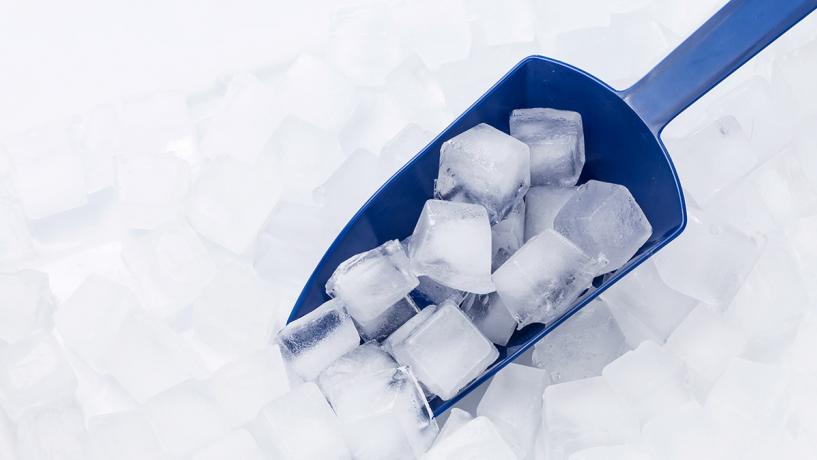
Food contamination is a major food safety concern. While it is typically associated with high-risk foods and perishables, there are other consumables at risk, like ice. Contamination occurs when a food is spoiled by the presence of another compound that affects its fitness for consumption. Contaminated food is a significant risk to your customers and your business as it can cause food-borne illness or injury, and make customers extremely ill.
Ice is similar to food in that the sources of contamination are the same. The three types of food contamination are:
- Biological Contamination
- Physical Contamination
- Chemical Contamination
Here are some examples of how ice can become contaminated: first, ice can become biologically contaminated from a Food Handler touching the ice with bare hands. Physical contamination can occur from something falling into the ice container and chemical contamination can occur from cleaning chemicals used on ice machines or storage containers. Ice is also subject to cross-contamination from ice machines or storage containers, or the tools used to scoop and portion. These are just some of the ways that ice can be contaminated, underscoring the importance of proper ice handling. Accordingly, ice should be handled in the same way food is handled.
Rules for handling ice
In order to prevent contamination and keep ice safe for customers, follow these rules:
- Always be sure to wash hands using the correct hand washing method before working with ice.
- Never touch ice with bare hands.
- Use utensils, such as ice scoops or tongs, that are cleaned and sanitised.
- Store utensils used for ice in an area where they will not become contaminated.
- Use specific containers for storing ice and make sure they are properly labelled.
- Always clean and sanitise dedicated ice containers before use.
- When not in use, store ice containers upside-down to prevent contamination.
- Ensure that ice machines are clean and working properly.
- Inspect ice machines regularly and perform regular maintenance.
- Do not store items near ice machines that could contaminate them (e.g. garbages, recycle bins, dirty dishes).
- Ensure that ice machines are locked so that they cannot be tampered with.
- Do not work with ice if experiencing diarrhoea, vomiting, nausea or fever.
Food safety training is key
Food safety measures, including food safety training for everyone who works with food, are critical to preventing food-borne illness. Food businesses must ensure that all food workers know the proper way to handle ice in order to keep customers safe and prevent contamination and food-borne illness outbreaks.
The Australian Institute of Food Safety provides nationally recognised food safety training through the Food Handler Course and the Food Safety Supervisor Course.




